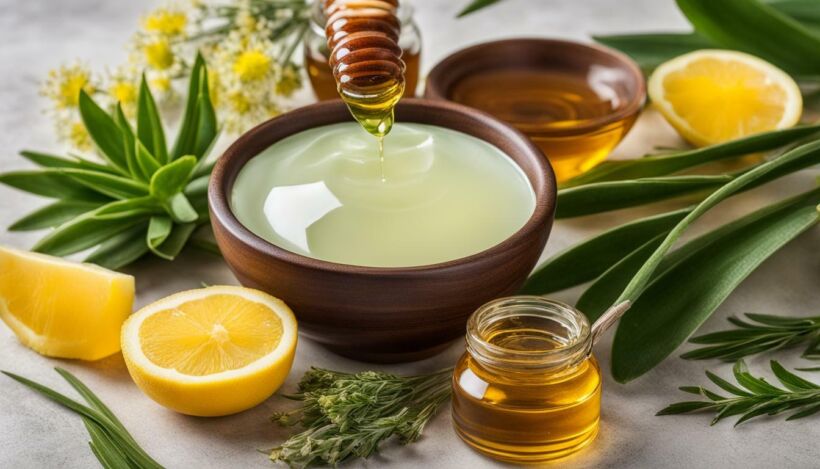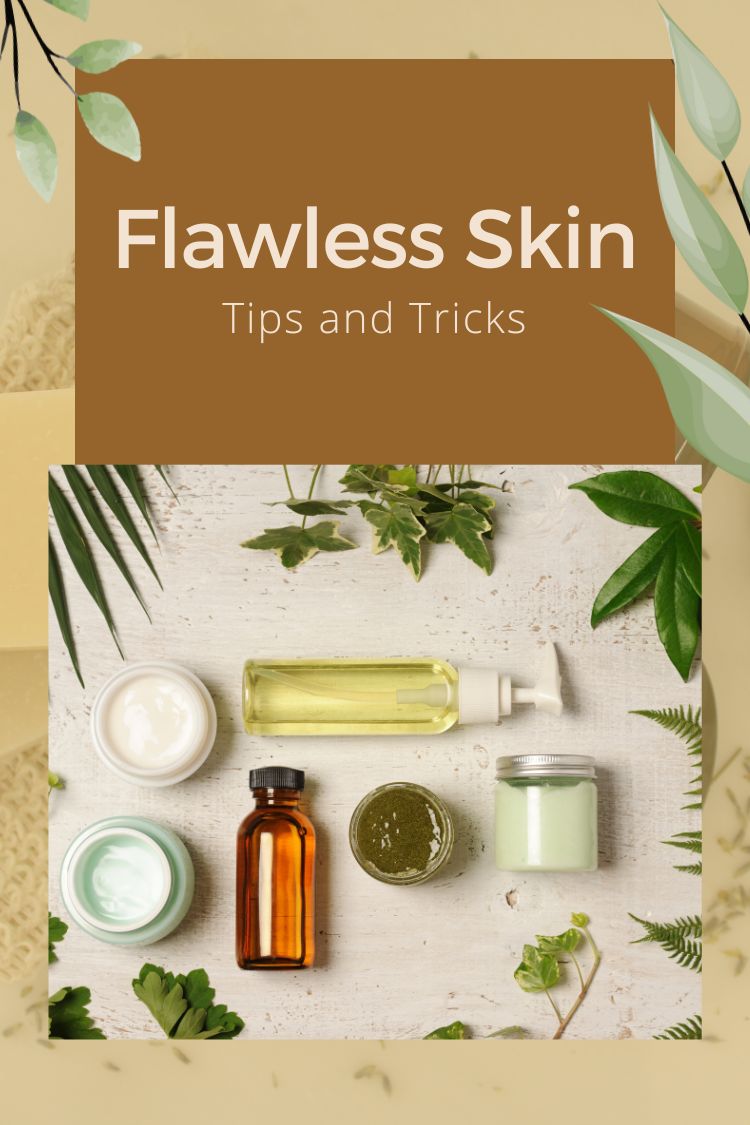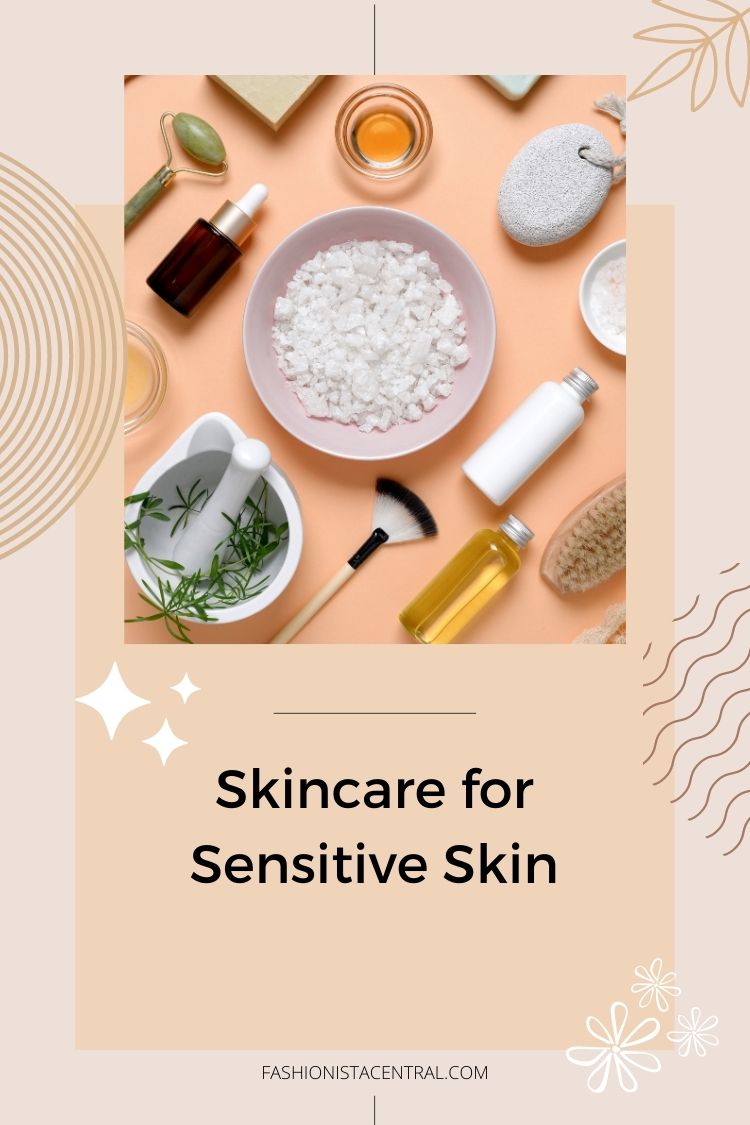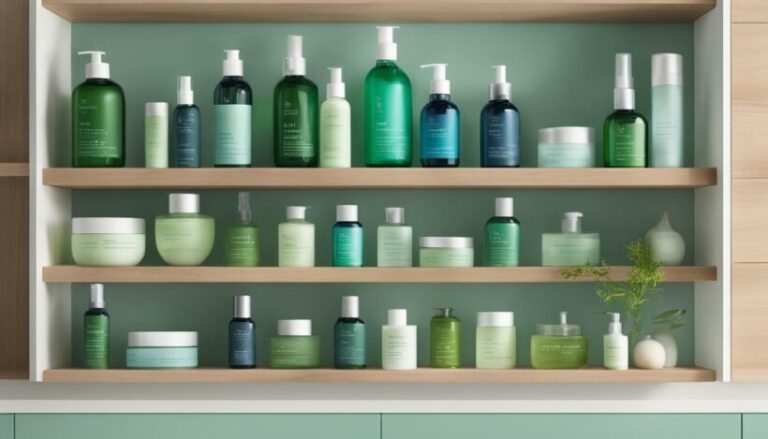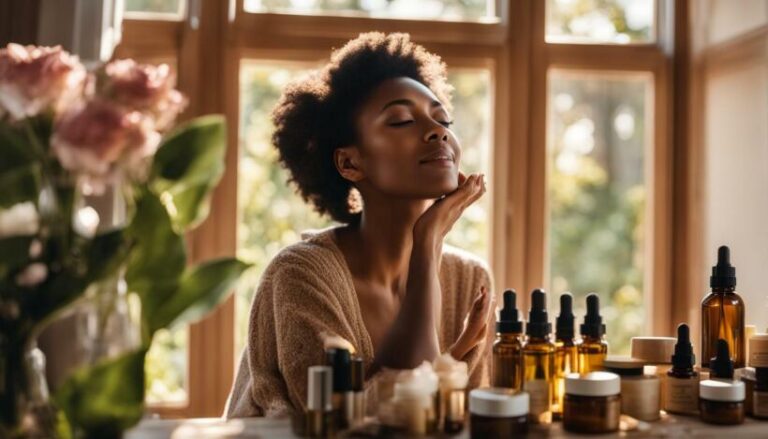Welcome to my comprehensive guide to achieving clearer and healthier skin. If you’re struggling with acne-prone skin, you’re not alone. As someone who has battled with breakouts for years, I understand how frustrating and demoralizing it can be. That’s why I’ve compiled my tried and tested DIY beauty tips for individuals with acne-prone skin. These natural remedies and homemade skincare recipes are gentle yet effective and will help you achieve the complexion you’ve always wanted.
When it comes to treating acne-prone skin, it’s essential to use products that are free of harsh chemicals and irritants. Natural remedies are a great way to avoid exposing your skin to potentially harmful ingredients. In this guide, you’ll learn how to make your own face cleansers, face masks, and spot treatments that will soothe inflammation and reduce blemishes.
Don’t let acne-prone skin hold you back from feeling confident and beautiful. With a little bit of know-how and some natural ingredients, you can achieve the clear, healthy skin you deserve.
Key Takeaways:
- DIY beauty tips for acne-prone skin can help you achieve healthy, clear skin.
- Natural remedies and homemade skincare are gentle yet effective alternatives to chemical-based products.
- This guide will teach you how to make your own face cleansers, face masks, spot treatments, and more.
- With some know-how and natural ingredients, you can overcome the frustration of acne-prone skin.
- Don’t let acne-prone skin hold you back from feeling confident and beautiful.
Understanding Acne-Prone Skin
If you’re struggling with acne-prone skin, you’re not alone. It’s a common condition that affects many individuals of all ages and backgrounds. Acne-prone skin is characterized by frequent breakouts of pimples, blackheads, and whiteheads, which can be painful and even leave scars.
Acne-prone skin can be caused by a variety of factors, including genetics, hormones, and an overproduction of sebum (oil) in the skin. Common triggers can also include stress, diet, and certain medications.
It’s important to note that not all acne is the same, and different types of acne may require different treatments. Some individuals may have mild acne, while others may have severe and persistent acne that requires medical intervention.
If you’re unsure about your skin type or the severity of your acne, it’s always best to consult with a dermatologist who can provide individualized advice and treatment options.
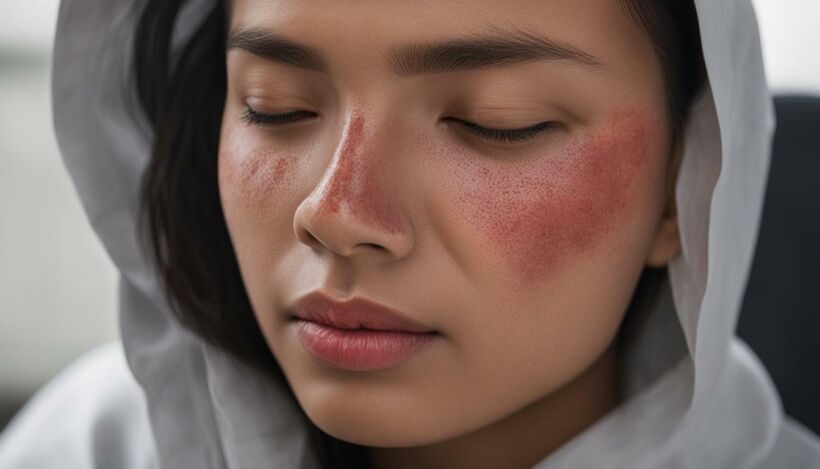
However, understanding the characteristics and triggers of acne-prone skin can help you make informed decisions about your skincare routine and the products you use. In the next section, we’ll explore some effective DIY face cleansers that are gentle on acne-prone skin.
DIY Face Cleansers for Acne-Prone Skin
Keeping your skin clean is crucial when dealing with acne-prone skin. However, many store-bought cleansers can be harsh and strip skin of its natural oils, aggravating the problem. That’s where DIY face cleansers come in. These gentle yet effective cleansers are ideal for acne-prone skin and are made with natural ingredients that you can find at home.
There are two DIY face cleansers that work wonders for acne-prone skin:
| DIY Face Cleanser | Ingredients | How to Make |
|---|---|---|
| Honey Cleanser |
|
|
| Oatmeal Cleanser |
|
|
The honey cleanser is perfect for those with sensitive skin, while the oatmeal cleanser gently exfoliates and softens the skin. Both cleansers are packed with antibacterial properties that combat acne-causing bacteria and leave your skin feeling refreshed and hydrated.
Tip: Don’t forget to patch test any new ingredients before applying them to your entire face. Apply a small amount to your inner arm and wait 24 hours to see if there is any reaction.
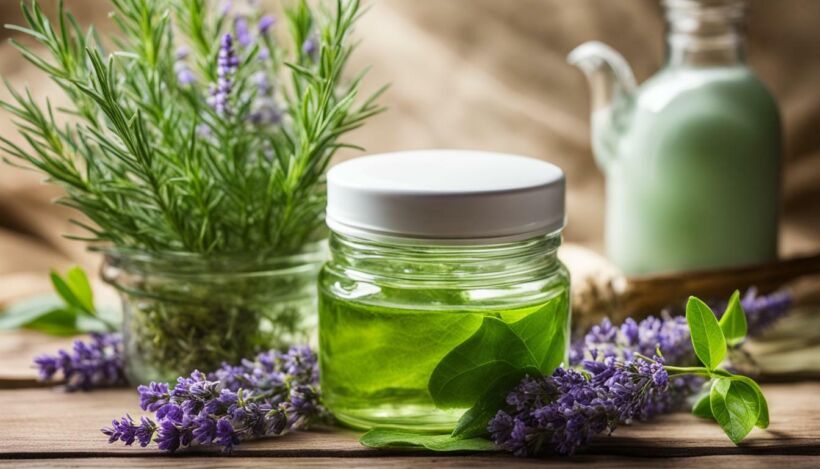
With these DIY face cleansers, you can maintain clean and clear skin without harsh chemicals or additives. Use them consistently and watch as your acne begins to clear up, leaving you with a brighter and healthier complexion.
DIY Face Masks for Acne Treatment
Acne-prone skin can benefit from the healing power of natural ingredients found in your pantry. Here are some DIY face mask recipes that can help treat acne and soothe inflammation:
| Ingredients | Directions |
|---|---|
| Honey and Cinnamon Mask | Mix 2 tablespoons of honey with 1 teaspoon of cinnamon. Apply the mixture to your face and leave it on for 10-15 minutes. Rinse off with warm water and pat dry. |
| Oatmeal and Yogurt Mask | Mix 2 tablespoons of cooked oatmeal with 1 tablespoon of plain yogurt. Apply the mixture to your face and leave it on for 20 minutes. Rinse off with cool water and pat dry. |
| Bentonite Clay Mask | Mix 1 tablespoon of bentonite clay with 1 tablespoon of water or apple cider vinegar. Apply the mixture to your face and leave it on for 10-20 minutes. Rinse off with warm water and pat dry. |
These ingredients are known for their antibacterial and calming properties. Using them in a homemade face mask can help reduce redness and inflammation while clearing up blemishes.
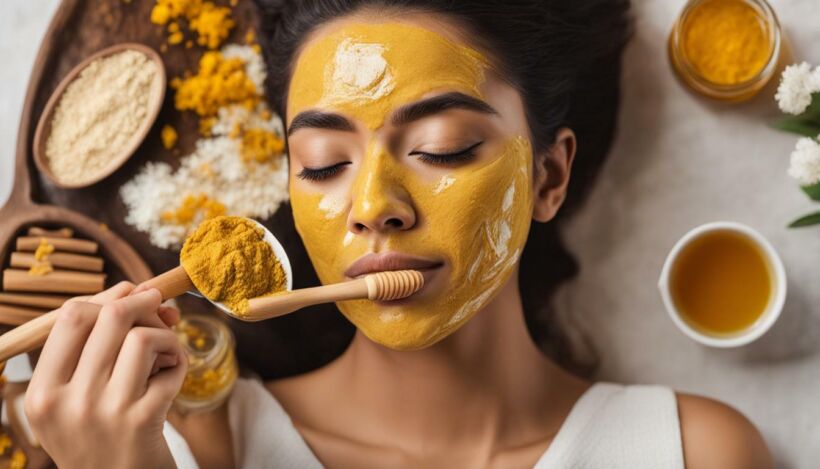
Choosing the Right Face Mask for Your Skin Type
It’s important to note that not all face masks are suitable for acne-prone skin. Avoid masks that contain heavy oils or pore-clogging ingredients like coconut oil or cocoa butter. Instead, opt for ingredients that are non-comedogenic and won’t exacerbate acne breakouts.
With these DIY face masks for acne treatment, you can nourish your skin with natural ingredients that are gentle and effective. Incorporate them into your skincare routine to see a clearer and healthier complexion.
DIY Spot Treatments for Acne Breakouts
If you’re dealing with an acne breakout, you’ll want to tackle it head-on with an effective spot treatment. Fortunately, there are several DIY remedies you can try that are both natural and affordable. Here are a few of my go-to spot treatments:
- Tea tree oil: This essential oil has antimicrobial properties that can help kill acne-causing bacteria. Mix a drop of tea tree oil with a carrier oil, such as coconut or jojoba oil, and apply it directly to your pimple with a cotton swab.
- Aloe vera: This plant has anti-inflammatory properties that can help reduce redness and swelling caused by acne. Apply fresh aloe vera gel to your pimple and let it sit for 10-15 minutes before rinsing it off.
- Apple cider vinegar: This vinegar has antibacterial properties that can help kill acne-causing bacteria. Mix one part apple cider vinegar with three parts water and apply it to your pimple with a cotton ball.
Remember to be cautious when applying these treatments, as some can be irritating to the skin. Always do a patch test on a small area of skin before applying it to your entire face.
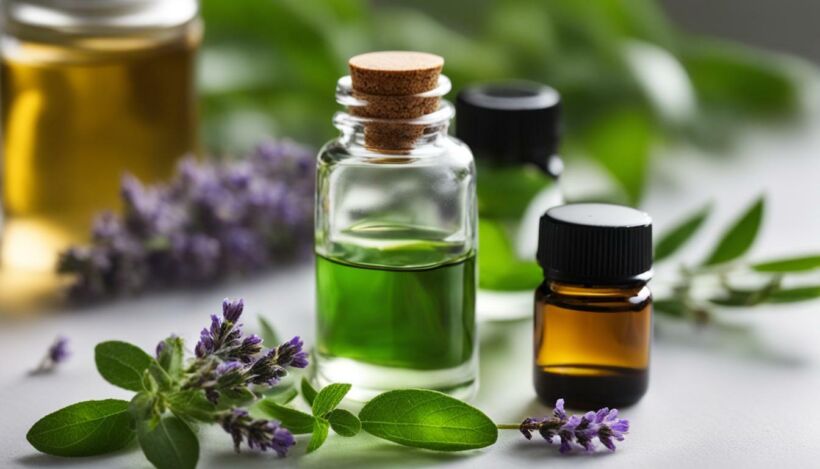
Homemade Acne Remedies for Clearer Skin
If you’re looking for natural ways to tackle acne, you’ve come to the right place. As someone who’s struggled with acne-prone skin, I’ve tried and tested several homemade acne remedies. Here are some of the most effective ones that I’ve found:
| Remedy | Ingredients | Benefits |
|---|---|---|
| Apple Cider Vinegar Toner | Apple cider vinegar, water | Helps balance the skin’s pH levels and control oil production |
| Green Tea Compress | Green tea bags, hot water | Contains antioxidants that reduce inflammation and redness |
| Raw Honey Mask | Raw honey, turmeric powder | Has antibacterial properties that fight acne-causing bacteria and soothes skin |
| Tea Tree Oil Spot Treatment | Tea tree oil, carrier oil (such as jojoba or almond oil) | Contains antimicrobial properties that reduce the size and redness of individual pimples |
Each of these remedies can be easily made at home and incorporated into your skincare routine. When trying out these remedies, it’s important to patch test first to ensure you’re not allergic to any of the ingredients.
Remember, every person’s skin is different, and what works for one person may not work for another. It’s essential to listen to your skin and adjust your skincare routine accordingly.
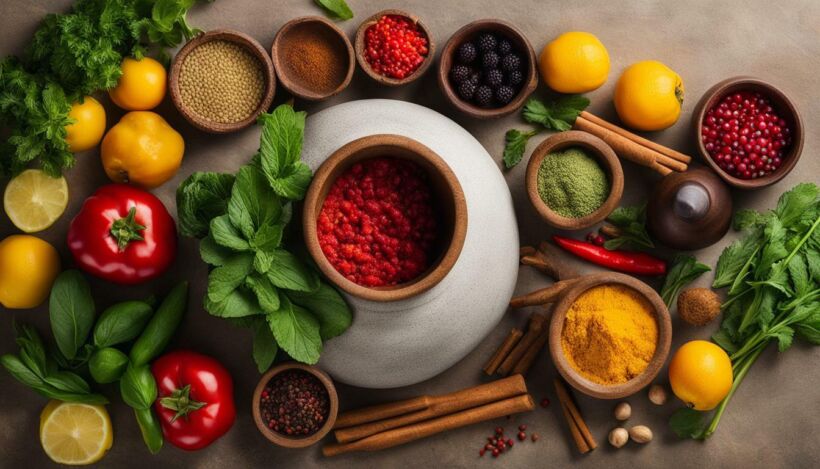
Natural Remedies for Acne-Prone Skin
As someone who struggled with acne-prone skin for years, I have discovered that natural remedies can be incredibly effective in maintaining healthy skin. Below, I will share some of my favorite natural remedies that can help you achieve clearer, smoother, and healthier skin.
Dietary Changes
The old saying “you are what you eat” rings true when it comes to your skin. Certain foods can trigger acne breakouts, so it’s essential to be mindful of what you consume. Incorporating more fruits and vegetables into your diet can make a significant difference in the appearance of your skin. Foods high in antioxidants, such as berries and leafy greens, can help reduce inflammation and protect your skin from damage. Additionally, cutting down on dairy and sugar can also have a positive impact on your skin’s health.
Herbal Supplements
Certain herbs and supplements have been shown to effectively treat acne-prone skin. Zinc, for example, is a mineral that helps regulate oil production and can reduce the frequency of breakouts. Evening primrose oil is another supplement that can help balance hormones and improve skin texture. Spearmint tea has also been shown to reduce acne-causing hormones in some individuals. As with any supplement, it’s crucial to speak with your healthcare provider before adding a new one to your routine.
Lifestyle Tips
Stress can take a toll on your skin, so taking steps to manage your stress levels can make a significant difference in the appearance of your skin. Try incorporating relaxation techniques such as yoga, meditation, or deep breathing exercises into your daily routine. Additionally, ensuring you get enough sleep can help your skin repair and nourish itself. Finally, be mindful of the products you use on your skin, opting for natural and gentle options whenever possible.
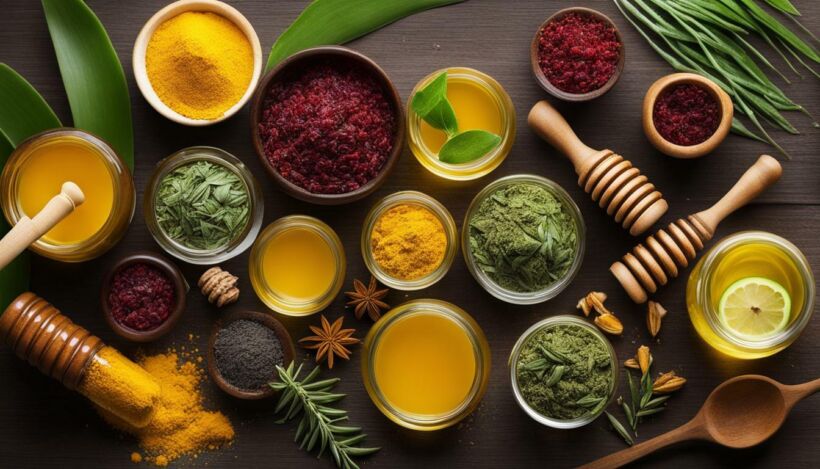
By incorporating these natural remedies into your daily routine, you can take a more holistic approach to maintaining healthy and clear skin. While there’s no one-size-fits-all solution when it comes to acne-prone skin, these tips can help promote a healthier complexion from the inside out.
Do-It-Yourself Acne Treatments That Work
If you’re looking for effective at-home remedies for acne-prone skin, you’re in the right place. Over the years, I’ve tested countless DIY treatments that have proven to be successful. Here are some of my top recommendations:
- Exfoliating Scrub: Mix together 2 tablespoons of brown sugar, 1 tablespoon of honey, and 1 tablespoon of coconut oil. Gently massage onto your face for 2-3 minutes, then rinse with warm water.
- Baking Soda Mask: Combine 1 tablespoon of baking soda and enough water to create a paste. Apply to your face and leave on for 10-15 minutes before rinsing off.
- Tea Tree Oil Spot Treatment: Apply a small drop of tea tree oil directly onto the pimple. Leave it on overnight and rinse it off in the morning.
- Green Tea Compress: Steep a green tea bag in hot water for 3-5 minutes. Allow it to cool, then place it on your face for 10-15 minutes. The antioxidants and anti-inflammatory properties in the green tea will help calm irritated skin.
- Oatmeal Mask: Mix 1 tablespoon of oats with enough water to form a paste. Apply to your face and leave on for 10-15 minutes before rinsing off. Oats have soothing properties and can help reduce inflammation.
Remember, consistency is key when it comes to seeing results with at-home acne treatments. Use these remedies regularly to achieve clearer and healthier skin.
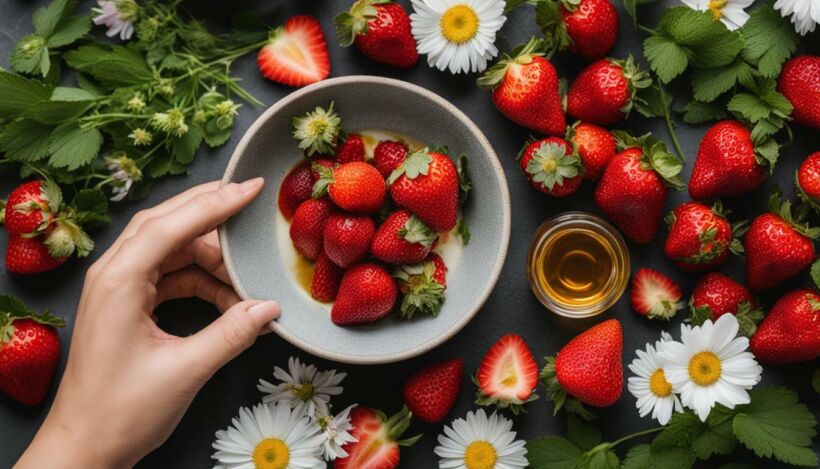
Conclusion
Incorporating these DIY beauty tips for acne-prone skin into your skincare routine can help you achieve a clearer and healthier complexion. By using natural remedies and homemade skincare products, you can avoid harsh chemicals that might further irritate your skin.
Remember, understanding your skin type and its specific needs is crucial to achieving the desired results. Experiment with different ingredients and recipes, and find what works best for you.
In summary, taking care of acne-prone skin requires a holistic approach that includes lifestyle changes, dietary adjustments, and a personalized skincare routine. With these DIY beauty tips, you can achieve a healthy and glowing complexion that you’ll love.
Thank you for taking the time to read this comprehensive guide, and I hope it helps you achieve your skincare goals.
FAQ
Q: What is acne-prone skin?
A: Acne-prone skin is characterized by a tendency to develop acne, which includes blackheads, whiteheads, pimples, and cysts. This skin type is more susceptible to clogged pores and inflammation.
Q: What causes acne-prone skin?
A: Acne-prone skin can be caused by a variety of factors, including hormonal fluctuations, excess oil production, bacteria, and clogged pores. Genetics and certain lifestyle choices can also contribute to the development of acne.
Q: How can I make DIY face cleansers for acne-prone skin?
A: You can create DIY face cleansers for acne-prone skin using natural ingredients like honey, tea tree oil, and aloe vera. These ingredients have antibacterial properties and help to soothe inflammation.
Q: What are some DIY face masks for acne treatment?
A: You can make DIY face masks for acne treatment using ingredients like bentonite clay, turmeric, and oatmeal. These masks can help absorb excess oil, reduce redness, and unclog pores.
Q: How can I create DIY spot treatments for acne breakouts?
A: DIY spot treatments for acne breakouts can be made using ingredients such as tea tree oil, witch hazel, and lemon juice. These remedies can help reduce the size and redness of individual pimples.
Q: What are some homemade acne remedies for clearer skin?
A: Homemade acne remedies for clearer skin include apple cider vinegar toners, green tea compresses, and honey masks. These remedies can help balance oil production and minimize the occurrence of breakouts.
Q: Are there any natural remedies for acne-prone skin?
A: Yes, there are various natural remedies for acne-prone skin. These include making dietary changes, using herbal supplements, and incorporating lifestyle tips such as stress management and regular exercise into your routine.
Q: Can I try do-it-yourself acne treatments at home?
A: Absolutely! There are many do-it-yourself acne treatments that have been proven effective. You can create exfoliating scrubs, overnight treatments, and face masks using ingredients like sugar, honey, and tea tree oil.
Q: How do these DIY beauty tips help acne-prone skin?
A: These DIY beauty tips for acne-prone skin provide a holistic approach to managing and improving your skin’s condition. By utilizing natural remedies and homemade skincare, you can reduce inflammation, unclog pores, and achieve a clearer and healthier complexion.

